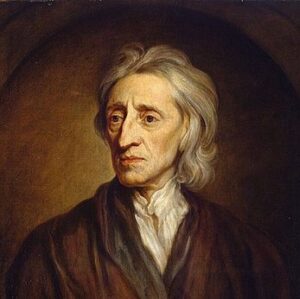John Locke was born to a Puritan family on August 29th, 1632, in Wrington, England. His father, a lawyer, joined the Parliamentary forces of Oliver Cromwell during the 1840s English civil war. Fathers’ anti-king stance reflected on the future life and opinions of John Locke.
His father’s connections from the war proved vital for young John. Hence, he had the chance to attend the elite Westminster School. At the age of 20, he entered Christ Church college of the University of Oxford. He gained a master’s degree in philosophy in 1658. Further, he returned to school a few years later for a bachelor’s degree in medicine.
John Locke grew close to Anthony Ashley Cooper, 1st Earl of Shaftesbury, and became his physician. Cooper was of the founders of the Whig party, which supported a constitutional monarchy. When he became Lord Chancellor, the highest-ranking state officer, in 1672, he took Jonh Locke with him as an assistant.

✟ October 28, 1704, High Laver, England
Locke’s philosophy
The two had to leave Britain after the King lost trust in the Earl of Shaftesbury. Locke stayed in France between 1675 and 1679 and until 1688 in Holland. Further, Locke returned to Britain after the Glorious revolution when protestant William II (William of Orange) became King.
He spent most of his time in exile writing. Maybe his most famous works on government are “Two Treatises of Government” from 1690. John Locke argues against the absolute power of monarchs to rule. Further, the hereditary rule has no background in the Bible. In contrast, society should form a government based on a mutual agreement and a social contract.
He also supported a more respectful relationship between students and teachers as well as and religious freedom.
His impact is evident on future philosophers, including Alexander Hamilton, James Madison, David Hume, Jean-Jacques Rousseau, and many others. Hence, John Locke inspired classical republicanism. Without overstatement, he was influential in the American and French revolutions. Also, Karl Marx claims to be inspired by his work.
The prominent symbol of liberalism, John Locke, died on October 28th, 1704, in High Laver, England.
“New opinions are always suspected, and usually opposed, without any other reason but because they are not already common.”
John Locke

